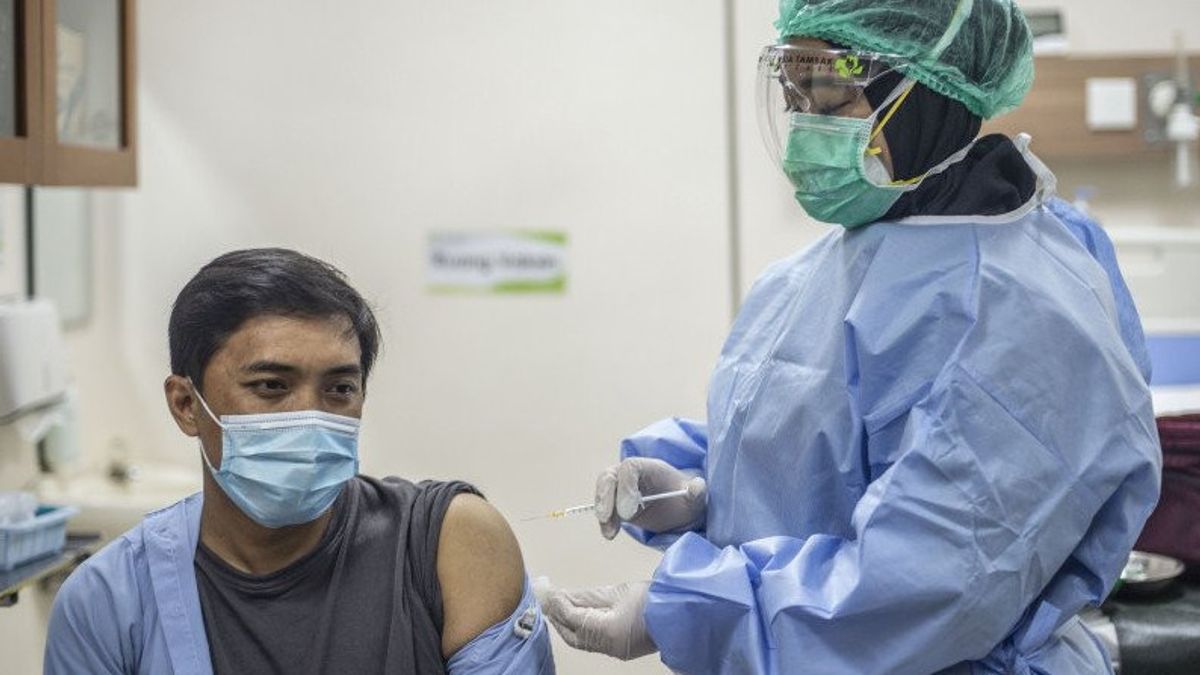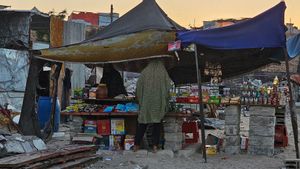JAKARTA - President Joko Widodo issued a regulation regarding administrative penalties that could lead to punishment for people who refuse to be vaccinated against COVID-19. However, the penalties for people who refuse the COVID-19 vaccine injection are still being contested by several parties.
A vaccination spokesperson from the Ministry of Health, Siti Nadia Tarmizi, explained that implementing penalties against the people who refuse the COVID-19 vaccine is the last step that the government will take.
"Penalties are the last resort and then will not really be implemented. If a citizen does not use their right to get the vaccination to protect themselves, it endangers other communities. Of course, the government must take action", Nadia said in a virtual press conference, Monday, 15 February.
This regulation is contained in Presidential Regulation (Perpres) Number 14 of 2021 concerning Amendments to Presidential Decree No, 99 of 2020 concerning Vaccines Procurement and Implementation of Vaccinations in the Context of handling the COVID-19 Pandemic.
In Article 13A, every person who has been designated as a target recipient of the COVID-19 vaccine who does not participate in the COVID-19 vaccination can be subject to administrative sanctions in the form of postponing or stopping the provision of social security or social assistance, delay or termination of government administration services, and/or a fine.
Also stated criminal penalties. In Article 13B, every person who has been designated as a target recipient of the COVID-19 vaccine, who does not participate in the COVID-19 vaccination and causes obstruction of the implementation of the prevention of the spread of COVID-19, may be subject to penalties in accordance with the provisions of the Law on Communicable Disease Outbreaks.
In principle, said Nadia, this mass vaccination is a joint effort so that Indonesian citizens can get out of the pandemic problem.
"So, the vaccinations given to us aim to protect and resolve the pandemic problem in this country. Not only for personal or individual interests but for the benefit of the country", said Nadia.
That way, the government will carry out education and persuasion as the main steps of the vaccination program before administrative and criminal penalties are implemented.
"Education and persuasion will be our main steps to invite people who still have resistance. Of course, it is important to involve religious leaders and community leaders as role models for vaccination", he explained.
As previously reported, the government was considered to have violated an agreement with the House of Representatives (DPR) regarding penalties for people who refuse the COVID-19 vaccine. The penalties for people who against the COVID-19 vaccine are contained in Presidential Decree No. 14 of 2021.
Chairman of Commission IX House of Representatives, Felly Estelita Runtuwene said in a meeting with the government it was agreed that penalties were not prioritized for people who did not carry out the COVID-19 vaccination.
"The point is that the government has violated its agreement with Commission IX of the House of Representatives. The government has violated it because the agreement is binding on both parties, the government, and the House of Representatives. What is the point of having a meeting if there is no legitimacy?", said Felly.
The English, Chinese, Japanese, Arabic, and French versions are automatically generated by the AI. So there may still be inaccuracies in translating, please always see Indonesian as our main language. (system supported by DigitalSiber.id)













